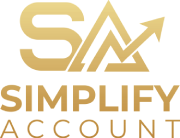Cash Flow Management is essential for the financial health of any business. Bookkeepers play a crucial role in ensuring that cash inflow and outflow are managed effectively. Thus here are ten good bookkeeping habits that can help increase cash flow

Stay on Top of Accounts Receivable
- Send out invoices promptly.
- Offer various payment options to clients.
- Keep track of outstanding payments and follow up.
Set Clear Payment Terms
- Clearly state payment terms on invoices.
- Avoid lenient payment terms to encourage timely payments.
Maintain Accurate Records
- Keep a ledger of all outstanding payments.
- Use tools like Excel or automated payment reminder tools.
Offer Discounts for Prompt Payment
- Incentivize clients to pay early by offering small discounts.
Delegate
- Consider hiring a professional to assist with cash flow management if it becomes overwhelming.
Track Every Expense
- Record all business-related expenditures, regardless of size.
- Use a dedicated business credit card to simplify tracking.
Spread Out Long-Term Payments
- Keep track of all recurring fees and pay them at the end of every month.
- Avoid surprises and unexpected charges.
Identify Areas for Investment
- Regularly review financial data to identify areas of the business that need additional investment for growth.
Stay On Top of Payments
- Pay suppliers promptly to maintain good relationships and potentially receive discounts.
Utilize Cash Flow Statements
- Generate and analyze cash flow statements regularly to understand how money is moving through the business.
- Use forecasts to anticipate future cash flow needs and thus make informed decisions.
Therefore implementing these bookkeeping habits can help businesses manage cash flow effectively, improve financial stability, and also ensure long-term success.
Read about Financial Reporting and Analysis. Click here.
Q&A Section
Q: What are some signs that a business may be experiencing cash flow issues?
Firstly some signs of cash flow issues include late payments to suppliers, difficulty paying bills on time, and relying heavily on credit to cover expenses.
Q: How can bookkeepers help businesses improve cash flow?
Bookkeepers can help improve cash flow by ensuring invoices are sent out promptly, tracking expenses accurately, and moreover analyzing cash flow statements to identify areas for improvement.
Q: What are some common mistakes businesses make that can negatively impact cash flow?
Lastly some common mistakes include not tracking expenses carefully, failing to follow up on outstanding invoices, and not planning for future cash flow needs.
Conclusion
In conclusion effective cash flow management is crucial for the financial health of any business. Additionally by implementing good bookkeeping habits, such as staying on top of accounts receivable, maintaining accurate records, and utilizing cash flow statements, businesses can improve cash flow, maintain financial stability, and ensure long-term success.
Besides read our ‘Guide to Personal Finance for Australians’ a comprehensive guide to managing your finances in Australia. Click here.


